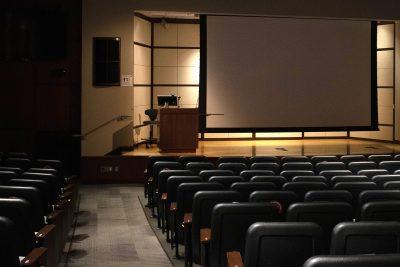
Boston University Associate Professor of Philosophy Daniel Star announced the creation of an American Association of University Professors chapter on campus in a tweet Saturday.
The AAUP, a national nonprofit composed of collegiate faculty and staff, states on its website that it strives to “shape American higher education by developing the standards and procedures that maintain quality in education and academic freedom.”
Star, one of the two co-presidents of the new chapter, said the formation stemmed from a need for stronger representation of professors at BU.
“We feel that the last several years at BU has revealed ways in which university leaders make decisions that don’t involve sufficient consultation with faculty,” Star said.
He noted a strong motivation behind the chapter’s formation was to promote greater agency for faculty when it came to administrative policies.
“We will be, in particular, wanting to encourage increased faculty involvement,” he said, “in decision-making within the university.”
Star added that the goal of the chapter is not to replace current structures of representation such as BU’s Faculty Council, but rather to contribute in a more policy-driven way rather than an advisory one.
Although the organization was intended for University faculty and graduate students, Star said he would be open to working with undergraduate students as well.
“We would love to work together with student organizations,” Star said. “We want students to be happy and supporting BU and happy with the changes that are occurring, maybe will occur in the future.”
The AAUP will meet March 20, when Star said the BU chapter will hopefully be approved and become official.
BU’s AAUP chapter organizer Perri Meldon, a second-year Ph.D. student in American and New England Studies, said she got involved to “recognize and respect the labor of faculty.”
“I see the AAUP as an opportunity to both recognize as well as try to dismantle some of the hierarchies that can exist and understandably the different power structures that do exist between faculty and students,” Meldon said.
She added she does not want the movement toward change to dissipate once COVID-19 is no longer a major problem.
“My goal is just that we don’t lose our steam post-pandemic,” Meldon said, “that we recognize there are other existing, uneven power structures in the university.”
Evan Powell, a freshman in the College of Arts and Sciences, said he supports professors on campus and the new initiative.
“It seems logical to have some sort of strong representation of the teachers in the administration because they’re the ones doing the teaching,” Powell said.
He noted it was likely they would have different viewpoints on academics than administration would.
“They’re likely to have some different perspective on how they should formulate their curriculum rather than some administrators,” he said.
Although Powell admits, as an undergraduate student, he doesn’t understand the balance of power between the BU administration and its educators, he views the formation of the AAUP chapter favorably.
CAS senior Mercedes Munoz said she understands the need for greater representation within the university and sympathizes with the professors’ cause.
“BU is a really big school and it’s really easy to get lost in the cracks sometimes if you’re not advocating for yourself,” Munoz said. “I think that professors sometimes do have their hands tied in what they’re given to teach, how they teach it.”
While Munoz said there should be some control from administration, faculty have the most responsibility because they directly interact with students.
“I think most professors … really want their students to learn well,” she said, “and professors are the only ones who know how best to do that.”
BU spokesperson Colin Riley did not respond to a request for comment.


















































































































